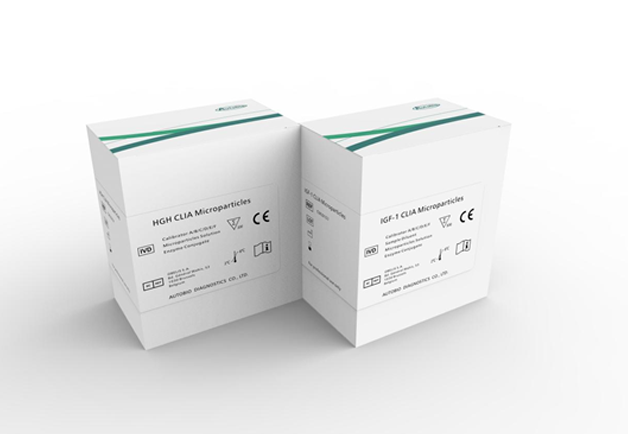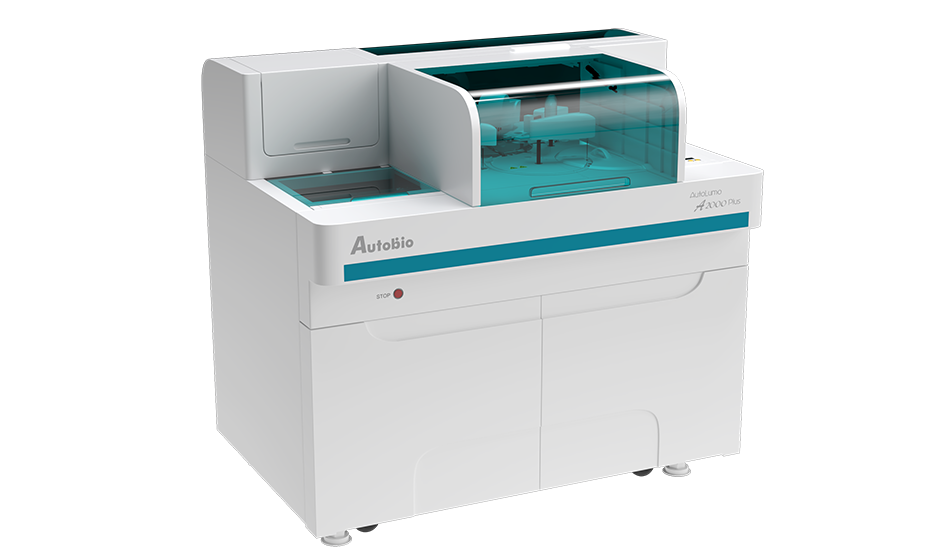

In general, pituitary dwarfism caused by "growth hormone deficiency" is one of the important causes of short stature in children. Too little secretion of adult growth hormone can seriously affect health, leading to the damage of body structure and function, the disorder of lipid and carbohydrate metabolism and the increase of cardiovascular diseases. Therefore, early accurate diagnosis is the key to determine the ultimate height development of children and the treatment effect of patients.

* Autobio is committed to improving the quality of products and services. The specifications and parameters of products are subject to the product manual.
The primary physiological effect of HGH is to promote linear growth, in part through insulin-like growth factor 1(IGF-1).IGH-1 synthesized by liver reaches all parts of the body through blood circulation, while IGF-1 produced by growing cartilage plays a role of paracrine growth factor locally. In addition, HGH also plays a role of anabolism, lipolysis and raising blood sugar.The correct detection of HGH content in serum is of great significance for the diagnosis of growth retardation caused by HGH deficiency in children and acromegaly caused by HGH hypertrophy in adults, and also for the diagnosis of pituitary tumors that can cause abnormal HGH secretion.
Igf-1 can promote cell proliferation, differentiation and maturation, inhibit cell apoptosis, mediate most of the effects of HGH, promote growth and anabolism, reduce blood glucose, regulate immunity and other effects.In addition, IGF-1 is an important factor regulating the function and metabolism of bone cells. For example, igF-1 can reduce collagen degradation, increase bone deposition, and promote osteoblast differentiation and maturation.
[1] Ranabir S& Reetu K. 2011. Stress and hormones. Indian J Endocrinol Metab.15 (1): 18–22.
[2] Nyberg F & Hallberg M. 2013. Growth hormone and cognitive function. Nat Rev Endocrinol. 9 (6): 357–65.
[3] Prodam F, Caputo M, Belcastro S, Garbaccio V, Zavattaro M, Samà MT, Bellone S, Pagano L, Bona G and Aimaretti G. 2012. Quality of life, mood disturbances and psychological parameters in adult patients with GH deficiency. Panminerva Med. 54 (4): 323–31.
[4]Conti E, Carrozza C, Capoluongo E, Volpe M, Crea F, Zuppi C, Andreotti F. 2005. Insulin-like growth factor-1 as a vascular protective factor. Circulation 110 (15): 2260–5.
[5] Trojan LA, Kopinski P, Wei MX, Ly A, Glogowska A, Czarny J, Shevelev A, Przewlocki R, Henin D, Trojan J. 2004. IGF-I: from diagnostic to triple-helix gene therapy of solid tumors. Acta Biochim. Pol. 49(4): 979–90.
Address: NO.87 Jingbei Yi Rd, National Eco&Tech Zone, Zhengzhou, China
Email: info@autobio-diagnostics.com Tel: +86-371-6200-7036
Autobio Copyright Reserved for ICP 18006568. All Rights Reserved.




